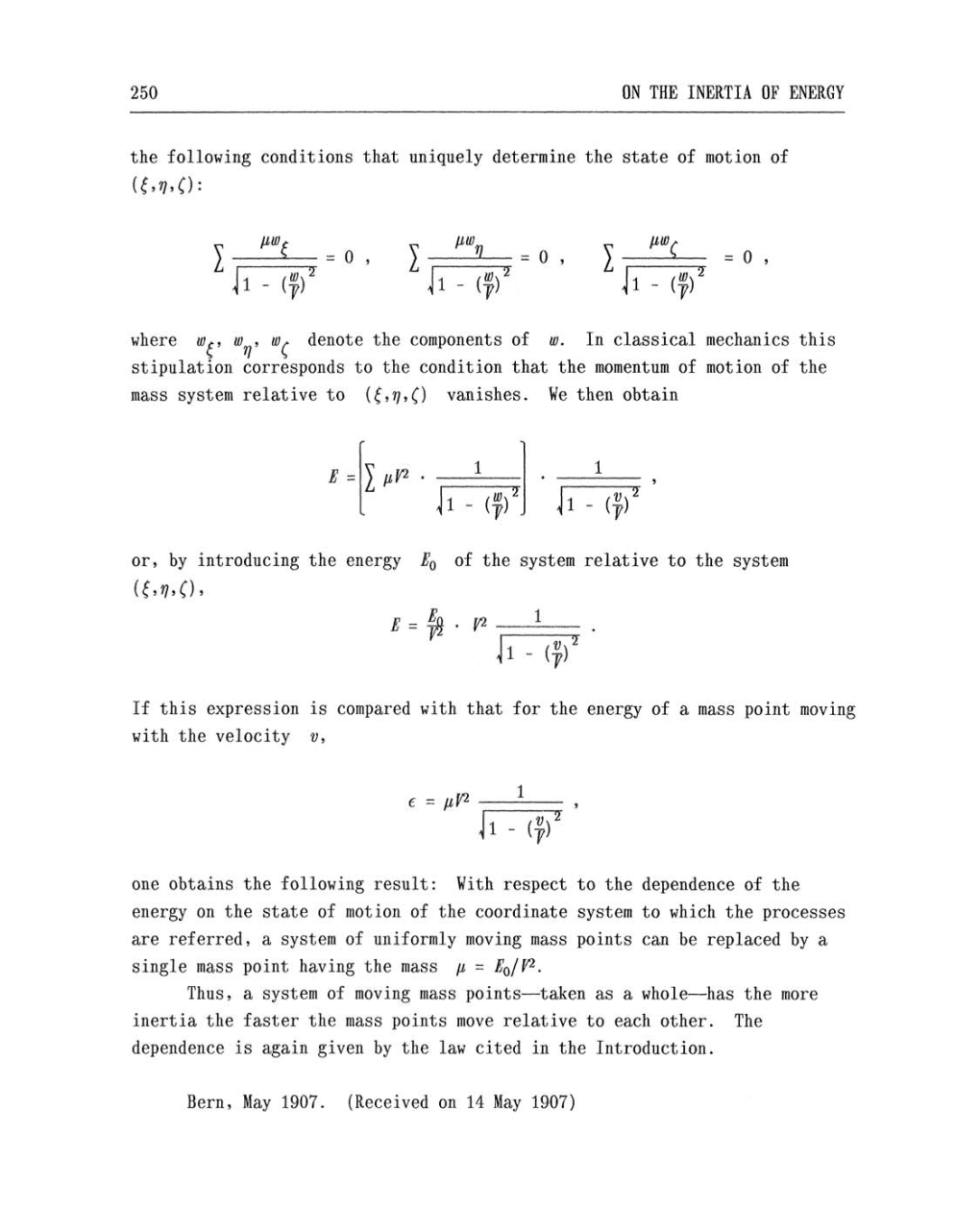250
ON
THE
INERTIA
OF ENERGY
the
following
conditions that
uniquely
determine the
state
of
motion
of
(E,n,C):
1
ßWI
Jl
-
(?)
7
=
0
,
i
ßW
1
0
,
i
-
(?)
7
i
ßWi
=
o
,
J
1
-
(?)
where wE,
wn, wC
denote
the
components
of
w.
In
classical
mechanics
this
stipulation
corresponds to
the condition that the
momentum
of motion of
the
mass
system
relative
to (E,n,C)
vanishes.
We
then obtain
E
-
1
^
"
(?)
7
Ji
-
(j)
7
or,
by
introducing
the
energy
E0
of
the
system
relative
to
the
system
(E,n,C),
E
=
V*
1
a
-
(T)
If this
expression
is
compared
with that for the
energy
of
a mass
point
moving
with the
velocity
v,
e
~ ßV2
1
ji
-
(?
7
one
obtains
the
following
result:
With
respect
to
the
dependence
of
the
energy
on
the
state of motion
of the coordinate
system
to which
the
processes
are
referred,
a
system
of
uniformly
moving
mass
points
can
be replaced
by a
single
mass
point
having
the
mass
u
=
E0/V2.
Thus,
a
system
of
moving mass
points-taken
as a
whole-has the
more
inertia the faster the
mass
points
move
relative
to
each
other.
The
dependence
is
again given
by
the
law
cited
in
the Introduction.
Bern,
May
1907.
(Received
on
14
May
1907)
